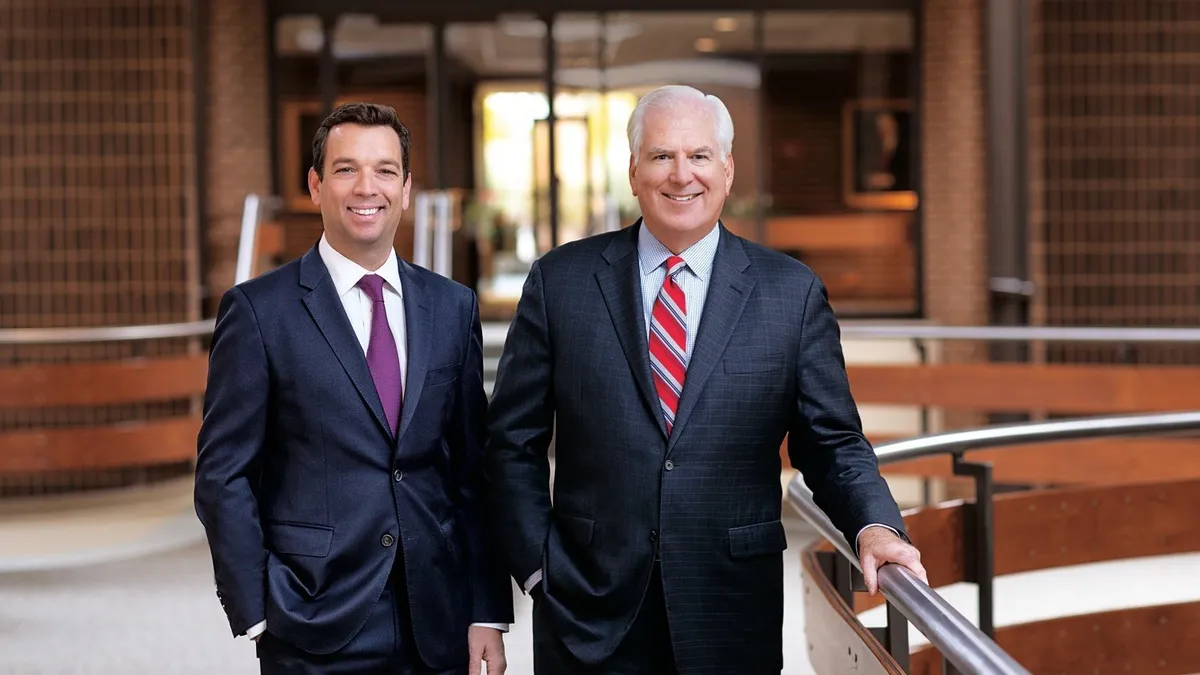Dive Brief:
- Longtime Abbott CEO Miles White's final earnings call (the "85th or 86th" of his tenure, he estimated) highlighted a nearly $32 billion year, topping the high end of its sales guidance as the core lab diagnostics business and medical devices unit climbed at double-digit rates.
- Incoming CEO Robert Ford forecast up to 8% organic growth for 2020 and pointed to a number of major regulatory approvals anticipated, including U.S. approval of TAVR device Portico and European authorizations for tricuspid valve repair device TriClip and mitral valve replacement system Tendyne.
- Although the diabetes business' FreeStyle Libre continuous glucose monitor system yet again saw colossal organic growth of 62.4% to $534 million during the quarter, Abbott execs reiterated that FDA's go-ahead for the next version of the device (Libre 2) remains outstanding, offering few details on the slower-than-expected review.
Dive Insight:
In roughly three years since Abbott closed its megadeal for St. Jude Medical, the medical devices unit has increased its annual revenues by roughly $7 billion.
In March, White is passing the torch to fellow Abbott veteran Ford, who said the company is not necessarily trying to make a big deal right now. Ford said he plans to continue a "very balanced approach" to M&A as the company pays down debt.
In a familiar refrain, Abbott attributed much of the growth during the quarter and year to its MitraClip mitral valve repair device, Alinity line of diagnostics systems and FreeStyle Libre. It also touted greater than 20% organic growth in its heart failure franchise, citing growing adoption of its HeartMate 3 left ventricular assist device since U.S. approval as a destination therapy at the end of 2018. Other strong sellers included cardiac diagnostic and ablation catheters for diagnosis and treatment of atrial fibrillation, Abbott said.
Worldwide MitraClip sales totaled $191 million during the quarter, an increase of $15 million since the third quarter and up more than 27% from last year. Abbott last week disclosed plans for a multinational clinical trial aimed at expanding that market to patients with moderate risk for surgery; the device is currently only indicated for patients at a prohibitive risk for surgery. The company also expects a boost from a CMS national coverage determination on transcatheter mitral valve repair devices, expected in the second quarter.
In talk on the diabetes business, Ford downplayed the delayed FDA greenlight for Libre 2, reiterating confidence in its bid for FDA's integrated CGM designation and saying the business had a "great fourth quarter without Libre 2."
During Abbott's earnings call in October, Ford said the company was working through a "handful of open items with the agency" on the Libre 2 submission. He said Wednesday he's "very pleased with the progress we've made," but declined to offer further specifics on when FDA's go-ahead might come or which aspects of the submission may be slowing the review.
Abbott said Libre's worldwide user base currently numbers about 2 million people, and 2019 revenues from the product approached $2 billion. The company plans to further expand Libre's reach in 2020 via more TV advertising, a growing salesforce and manufacturing capacity, and launching in new international markets, Ford said.
Abbott set organic revenue growth guidance for 2020 between 7% and 8%. That's up slightly from the 6.5% to 7.5% Abbott forecast for 2019 this time last year. CFO Brian Yoor, who like White is stepping down in March, said Abbott expects double-digit growth in medical devices in both the first quarter in 2020 and for the full year.
Shares in Abbott were up about 2.5% Wednesday morning.











